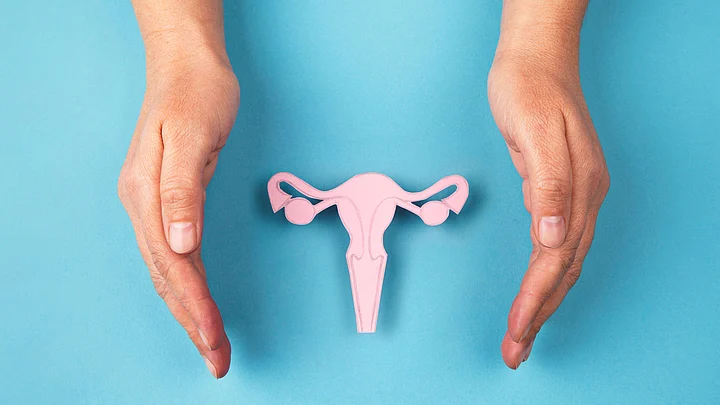Adar Poonawalla, Head of Indian biotech company Serum Institute of India, in an event on 1 September, announced the scientific completion of the company's Human Papillomavirus (HPV) inoculation against cervical cancer.
SII's HPV vaccine is all set to be India's first homegrown HPV vaccine, and is likely to be launched in a few months, he added.
Scientific completion means that the Research & Development stage of the vaccine is complete. The next step would be production of the vaccine, so they can be made available to the public.
On 12 July, Adar Poonawalla announced that the vaccine has been approved by Drugs Controller General of India, and the Ministry of Health and Family Welfare.
Taking to Twitter, he added, "For the first time there will be an Indian HPV vaccine to treat cervical cancer in women that is both affordable and accessible."
The company had submitted data from their clinical trials to the health authorities for review in June.
HPV is responsible for a wide variety of genital infections. It can also lead to cancer of the cervix, vulva, vagina, or penis, according to the US Centre for Disease Control and Prevention.
What do we know about this cervical cancer vaccine (HPV vaccine)? Who is it meant for?
FIT answers your FAQs.
Firstly, why do we need an HPV vaccine?
Cervical cancer which is mainly caused by an HPV infection is the second most common cancer in the world.
According to estimates published in the Indian Journal of Medical and Paediatric Oncology (IJMPO), more than 80 percent of sexually active women are infected with genital HPV by the age of 50.
So the development of the HPV vaccine was a welcome step towards minimising this burden.
Is it a major cause for concern in India?
Yes, cervical cancer is the second most common cancer among women between 15 and 44 years of age, in India.
What do we know about the SII cervical cancer vaccine?
Serum Institute's cervical cancer vaccine, CERVAVAC, is a quadrivalent HPV (qHPV) vaccine that includes L1 VLPs of serotypes 6,11,16,18 – which means it targets and protects against these 4 types of Human papillomavirus (HPV).
The vaccine is similar to the Hepatitis B vaccine and provides protection by generating antibodies.
According to the company, their HPV vaccine is expected to give a coverage of approximately 90 percent against HPV prevalent in the developing world.
What do we know about the clinical trials?
According to reports, Serum Institute of India has completed phase 2/3 clinical trials of the vaccine.
The trials were started in early 2019 and involved participants between the ages of 9 and 26 years in12 sites in India.
Phase 3 results showed a robust immune response in 100 percent of the vaccine recipients with excellent safety records.
Based on the data from this clinical trial, the Drugs Controller General of India (DCGI) and MoHFW granted the vaccine market authorisation .
Is it the first cervical cancer vaccine in India?
It is not the first HPV vaccine to be available in India, but it is the first home-grown one to be produced here.
Why does India need its own HPV vaccine?
Currently, HPV vaccines are Imported into India and are only available in private hospitals.
The two HPV vaccines available in India are Ceravix (produced by GSK pharmaceuticals) and Gardasil (MSD Pharmaceuticals), both of which cost up to Rs 4000 per dose.
How much will SII's HPV vaccine cost?
On 1 September, Poonawalla also announced that the vaccine is likely to be priced between Rs. 200 and Rs. 400.
When are women most prone to getting cervical cancer?
Although one can get infected with HPV and have cervical cancer at any age, the risk is higher in those between 30–44 year olds, and peaks at around 50 years.
Should I wait till my thirties to take the vaccine?
No. The HPV vaccine is only recommended for those up to the age of 26.
According to the US CDC, after 26, the vaccine should only be taken after consulting with your doctor.
I'm not sexually active yet, do I still need the HPV vaccine?
Yes. In fact, the HPV vaccine is recommended by the US Centre for Disease Control and Prevention (CDC) for all children aged 11 and 12.
The SII HPV vaccine has been approved for girls and boys 9 to 26 years of age.
When will SII's cervical cancer vaccine be available?
According to Adar Poonawalla, the vaccine is expected to hit the market by the end of this year.
What does this vaccine mean for third world countries?
Cervical cancer is the most common cancer cause of death in the developing countries.
But most third world countries have to import these vaccines, driving up the prices and rendering them unaffordable and inaccessible to most.
SII's HPV vaccine, however, could change this and make this essential vaccine accessible to a wider population.
Moreover, according to the company, the vaccine has been shown to be up to 90 percent efficious against the strains of HPV dominant in third world countries.

